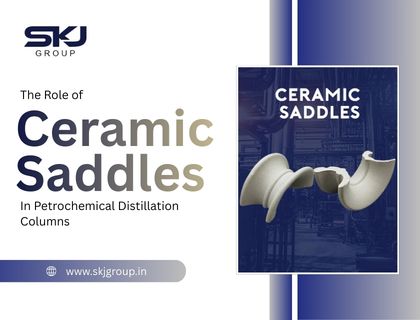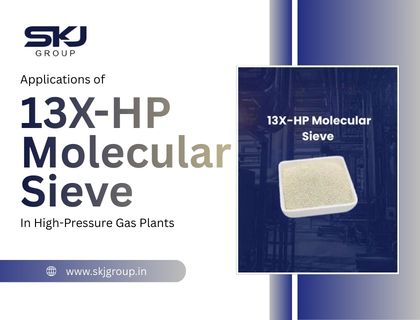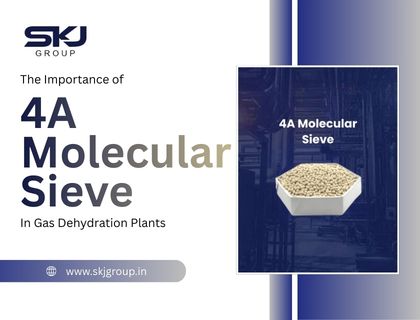What Makes Ceramic Rings the Best Choice for Industrial Packing Towers?

How Can Ceramic Tiles Protect Industrial Floors from Chemical Damage?
July 12, 2025
How Do Ceramic Grid Blocks Improve Heat Distribution in Furnaces?
July 16, 2025In the world of industrial process engineering, the performance of your packing tower can significantly influence your operational efficiency. That’s where ceramic rings for industrial packing towers step in—providing a reliable, durable, and cost-effective solution for gas absorption, scrubbing, and distillation systems.
This blog will help you understand why ceramic ring manufacturers, especially in India, are seeing a rise in demand. We’ll explore the advantages of ceramic rings, their design features, and real-world use cases to help you make an informed buying decision.
Understanding the Role of Packing in Industrial Towers
What Is a Packing Tower?
A packing tower is a vertical column used in many industries—like petrochemical, pharmaceutical, and water treatment—to facilitate gas-liquid contact. Efficient mass transfer depends heavily on the type of packing material used.
Why Packing Material Matters
The right packing ensures:
- Low pressure drop
- High surface area for contact
- Resistance to corrosion and temperature
- Long operational life
This is exactly what ceramic rings for industrial packing towers deliver.
Why Ceramic Rings Are Ideal for Packing Towers
1. High Mechanical Strength
Ceramic rings are produced using refined clays and minerals, fired at high temperatures. This gives them:
- Excellent load-bearing capacity
- Resistance to crushing in high-pressure applications
- Long-lasting structure even under stress
This makes them suitable for tall towers and large-scale operations.
2. Exceptional Chemical Resistance
Industries often use corrosive fluids like acids and alkalis. Ceramic rings:
- Resist corrosion from most chemicals
- Withstand high-pH and low-pH environments
- Remain stable even after prolonged exposure to reactive compounds
3. Low Pressure Drop and High Efficiency
Thanks to their open, hollow design:
- Fluid flows smoothly through the column
- Minimal energy is required for operation
- Excellent distribution of liquid film is achieved
This enhances the tower’s absorption or distillation efficiency.
4. Thermal Stability for Extreme Conditions
Ceramic rings offer unmatched thermal stability:
- Operate efficiently from sub-zero to 1000°C
- Ideal for exothermic and endothermic reactions
- Prevent cracking during thermal cycling
This makes them a preferred choice in high-temperature towers.
5. Easy to Install and Replace
Their uniform shape and lightweight structure allow:
- Quick loading and unloading
- Reduced downtime during maintenance
- Lower labor costs
Applications Across Various Industries
Chemical Industry
Used in scrubbers and absorbers to remove harmful gases like SO₂ and HCl.
Petrochemical Industry
Ideal for distillation towers where hydrocarbons are separated based on boiling points.
Water Treatment Plants
Used in gas stripping towers for removing ammonia or carbon dioxide.
Food and Beverage Processing
Safe for use in towers handling steam, alcohols, or organic solvents.
How to Choose the Right Ceramic Ring
- Size: Typically ranges from 10 mm to 76 mm
- Shape: Raschig rings, partitioned rings, or custom shapes
- Porosity: Open structure vs. high-density types
- Material Grade: Choose based on chemical and thermal exposure
India as a Hub for Ceramic Ring Manufacturing
Why Indian Manufacturers Stand Out
- Competitive pricing
- ISO-certified facilities
- Bulk production capabilities
- Global supply chain reach
Many top ceramic ring manufacturers in India offer both standard and customized solutions for global industries.
Benefits of Choosing the Right Ceramic Ring Supplier
- Consistent product quality
- On-time delivery
- Technical support and after-sales service
- Flexible packaging and logistics
FAQ Section
Q1: Are ceramic rings reusable after use?
A: Yes, if they aren’t physically damaged or contaminated, they can be cleaned and reused.
Q2: What sizes are most common in industrial towers?
A: Sizes from 25 mm to 50 mm are standard for most applications.
Q3: Can ceramic rings be used in food-grade applications?
A: Yes, provided they meet food-safety certifications and are free from toxic additives.
Q4: How do I get a custom size ring?
A: Leading ceramic ring exporters offer custom sizing upon request with MOQ (Minimum Order Quantity).
Conclusion
Ceramic rings for industrial packing towers combine mechanical strength, chemical resistance, and thermal stability into one robust package. Whether you are in chemicals, petrochemicals, or water treatment—these rings outperform other materials like plastic or metal in harsh environments.
Ready to upgrade your packing solution? Partner with trusted ceramic ring manufacturers or ceramic ring suppliers in India to get the best value and performance.
Enhance your tower performance today!
Contact us now for a customized quote and technical consultation.




